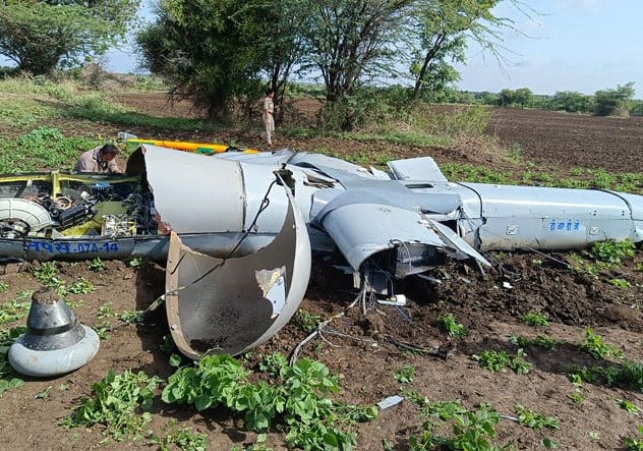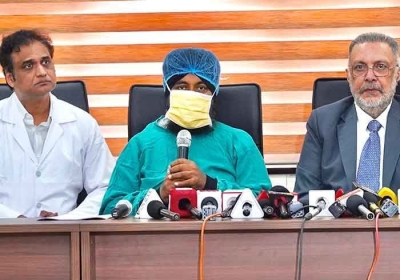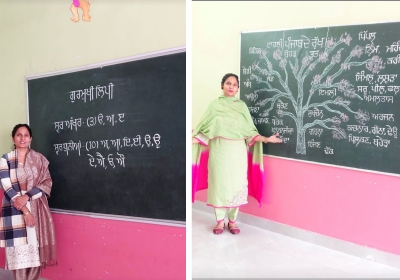
Indigenous Tapas UAV Crashes
Indigenous Tapas UAV Crashes During Test Flight Due to Technical Issue
An indigenous unmanned aerial vehicle (UAV) named Tapas, developed by India's Defence Research and Development Organisation (DRDO), experienced a technical malfunction during an experimental flight trial. As a result, the UAV crashed in a farmland near Challakere in Karnataka's Chitradurga district. This incident raises concerns about the technical aspects of the UAV's development.
Crash and Technical Snag:
The Tapas UAV, designed for medium altitude long endurance (MALE) operations, crashed while undergoing its test flight. The DRDO attributed the crash to a technical snag that occurred during the flight trial. The organization has launched an investigation into the incident to determine the specific cause of the technical malfunction.
ALSO READ: Army veteran responds to Rahul Gandhi's China remark: "India may have lost land since 1950
Investigation and Minimal Damage:
The DRDO clarified that the crash did not result in any collateral damage. An investigation is underway to ascertain the exact technical reason behind the crash. This investigation is crucial to identify any potential flaws in the UAV's design or functionality.
UAV Overview and Capabilities:
The Tapas UAV is a tactical airborne surveillance platform developed by DRDO. It has undergone more than 200 test flights prior to the recent incident. Operating at an altitude of up to 28,000 feet, the UAV boasts an impressive endurance of 18 hours. Additionally, it has the capability to conduct nighttime operations. The UAV addresses the intelligence, surveillance, target acquisition, and reconnaissance (ISTAR) requirements of India's armed forces. It can carry a payload of up to 350 kilograms.
Importance and Context:
The crash incident is particularly significant as the UAV was poised for user evaluation trials. Furthermore, the development of a high altitude long endurance (HALE) drone category within India is of strategic importance. Currently, India is procuring 31 MQ-9B remotely piloted aircraft systems (RPAS) from the United States to address the technological gaps faced by DRDO in indigenous HALE drone development. This procurement aims to enhance India's military capabilities and bolster the armed forces.
ALSO READ: Majestic Launch of INS Vindhyagiri: A New Chapter in India's Naval Power
In conclusion, the crash of the indigenous Tapas UAV during a test flight due to a technical malfunction highlights the complexities and challenges of UAV development. This incident underscores the need for thorough investigation and refinement in the development process to ensure the reliability and effectiveness of such critical defense systems.





